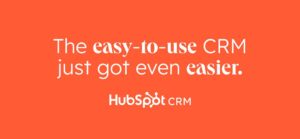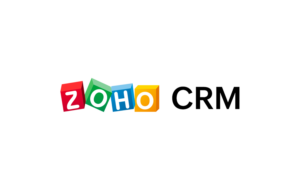Free Micro-eMBA Module #11 (Optional Module): Conducting Complete Fitness Test of Your Business
© Copyright Carter McNamara, MBA, PhD, Authenticity Consulting, LLC.
This module is in the organization development program. However, this module can also be used by anyone as a self-study exercise to assess the health of major aspects of a business.
Sections of This Module Include the Following
- Introduction
- Outcomes
- Materials for Review
- Suggested Topics for Reflection and Discussion
- Activities to Build Systems and Practices
- Assessments
- Tracking Open Action Items
INTRODUCTION
This module provides a set of extensive checklists that can be used to assess the health of a business’s practices in the areas of legal, governance (Board), human resource management and supervision, market research, advertising, public relations, customer service and sales, and financial management.
If you have completed the various learning modules in the organization development program, then the various checklists in this module will likely indicate that the practices in your business are very healthy.
OUTCOMES
Evaluate Quality of:
- Compliance to Laws and Regulations
- Board Operations
- Strategic Planning
- Supervisory and Human Resource Management Practices
- Market Research
- Advertising
- Public Relations
- Customer Service and Sales
- Financial Management
MATERIALS FOR REVIEW
- The following materials will help you address each of the topics and learning activities in this module.
For-Profit Organizational Assessment
SUGGESTED TOPICS FOR REFLECTION AND DISCUSSION
- Learners are strongly encouraged to discuss the following questions with peers, board members, management and staff, as appropriate.
1. After doing the above assessment, identify the 2 or 3 functions (Boards, human resources, planning, etc.) that had the most checkmarks in the “Needs Work” columns.
2. Which of those 2 or 3 functions needs attention before the others? If the Board and/or Strategic Planning got the most checkmarks, then be sure those functions get prompt attention because, without attending to them, it’s not likely that improvements in other functions will last very long. Those two functions are what tend to ensure the long-term health of all other functions.
ACTIVITIES TO BUILD SYSTEMS AND PRACTICES
- Learners are strongly encouraged to complete the following activities, and share and discuss results with peers, board members, management and staff, as appropriate.
- As you proceed through the following activities, be sure to note any incomplete actions in the Action Item Planning List.
1. After identifying which of the 2 or 3 functions need the most attention (see #1 above) for now, list the activities that were marked as “Needs Work” in each of those functions, eg., list the activities that “Needs Work” in Boards.
2. For each of those lists, refer to that list as a “Work Plan” and assign that Plan to a Board Committee to oversee that the list is addressed, eg, assign the list of “Needs Work” in the Board function to a Board Development Committee or assign the list of “Needs Work” in the finances function to a Finance Committee to ensure the list is addressed.
ASSESSMENTS
There are no assessments in this section of the module, as there are in the other modules in the program, because this module is all about assessments, as provided above.
TRACKING OPEN ACTION ITEMS
1. One of the first indicators that an organization is struggling is that open action items are not tracked and reviewed. (Open action items are required actions that have not yet been completed.) Instead, organization members only see and react to the latest “fires in the workplace”. Whether open action items are critical to address now or not, they should not entirely be forgotten. Therefore, update and regularly review a list of open action items that includes listing each open action item, who is responsible to complete it, when it should be completed and any associated comments. When updating the list, consider action items as identified during discussions, learning activities and assessments in this module. Share and regularly review this action item list with the appropriate board, management and staff members in your organization. You can use the following Action Item Planning List.
2. If you have questions, consider posing them in the national, free, online discussion group hr.com, which is attended by many human resource and organization development experts.
REMINDERS FOR THOSE IN THE ON-LINE DEVELOPMENT PROGRAM
1. Are you exchanging feedback with others about what you’re learning in this program?
2. Are you sticking to your study schedule for this program?
3. Are you practicing your basic skills in management and leadership, including in problem solving and decision making, planning and meeting management?
4. Are you communicating throughout your organization by using your skills in internal communications?
5. Are you managing yourself? How many hours a week are you working? Are you noticing any signs of stress? If so, what are you doing about it?
6. One of the ways you might be able to tell if you’re stressed out and/or losing perspective might be whether you’re tracking details or not. Are you using the action item list referenced above?
7. Are you reflecting on learnings from past modules and how they build on the learning in this module? For example, are you seeing your organization from a systems view, as explained in the module “Starting and Understanding Your Organization”?
TRACKING OPEN ACTION ITEMS
1. One of the first indicators that an organization or a person is struggling is that open action items are not tracked and reviewed. (Open action items are required actions that have not yet been completed.) Instead, people only see and react to the latest “fires” in their workplaces or their lives. Whether open action items are critical to address now or not, they should not entirely be forgotten. Therefore, update and regularly review a list of open action items (identified while proceeding through this program) that includes listing each open action item, who is responsible to complete it, when it should be completed and any associated comments. When updating the list, consider action items as identified during discussions, learning activities and assessments in this module. Share and regularly review this action item list with the appropriate peers, board, management and employees in your organization. You can use the following Action Item Planning List. (At that Web address, a box might open, asking you which software application to open the document.)
2. If you have questions, consider posing them in the national, free, online discussion group hr.com, which is attended by many human resource and organization development experts.
(Learners in the organization development program can return to the organization development program.)
For the Category of Evaluations (Many Kinds):
To round out your knowledge of this Library topic, you may want to review some related topics, available from the link below. Each of the related topics includes free, online resources.
Also, scan the Recommended Books listed below. They have been selected for their relevance and highly practical nature.
 Sections of this topic
Sections of this topic














